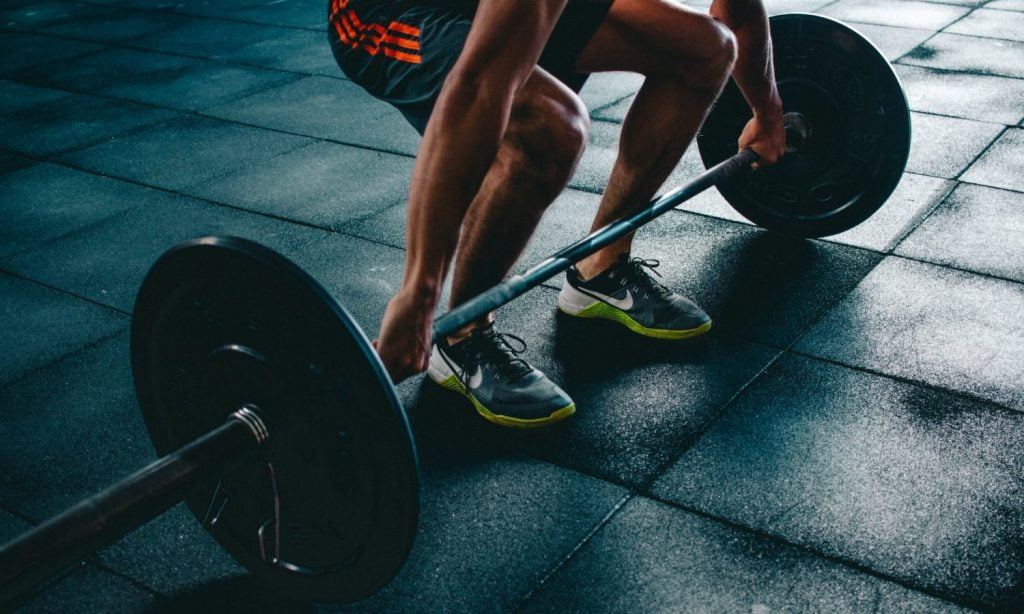
4 benefits of incorporating cannabis into your fitness routine
As some states legalize the use of cannabis, the social stigma surrounding the issue may ease. Nowadays, cannabis seems to have become more popular and accessible to people. In fact, there are fitness gurus and athletes who are even starting to talk about its benefits.
Today, some fitness enthusiasts ingest cannabis before or after their exercise routine, believing there are benefits to exercising while high. Aside from that, cannabis is believed to improve overall fitness as well.
To put your mind at ease, here are some claimed cannabis health benefits and how it should up your fitness game.
Photo by Caley Vanular via Unsplash
Minimizing inflammation and pain
One of the most promising areas of cannabis research is its ability to reduce joint and muscle inflammation. Studies have tried to prove that the non-psychoactive cannabinoid in cannabis, cannabidiol (CBD), may help reduce inflammation.
Related to its anti-inflammatory properties, cannabis is also known to help relieve body aches and sore muscles that result from over-exercising. CBD can reduce pain by affecting endocannabinoid receptor activity, interacting with neurotransmitters in the nervous system, and reducing inflammation. It is said to be effective in relieving acute pain, pain from twisted muscles, and chronic pain.
RELATED: Is Marijuana the Next Recovery Revolution for Pro Athletes?
This could be beneficial for athletes and fitness enthusiasts struggling with inflammation and pain in muscles and connective tissues. It could also be helpful for those recovering from surgery or a previous injury.
This is perhaps the primary area of cannabis research that seems to have shown positive results. It can be good news for fitness enthusiasts looking for alternatives to opiates.
improve sleep
Sleep is crucial to overall fitness as it gives the body enough time to recover and repair damaged muscles after exercise. Because only then does the body produce growth hormones, which are necessary for recovery.
Unfortunately, many people suffer from sleep deprivation. That means they don’t get the recommended seven to eight hours of sleep every night. When this happens, it could mean they are sabotaging their own fitness goals.
However, cannabis can help in this area as it is thought to help induce sleep. It is said to help restore the natural sleep cycle, which is usually thrown off balance due to the daily schedules and stressors of modern life. Due to its purported anti-anxiety properties, cannabis may also help calm a stressed mind and body. And if chronic pain makes it difficult for you to close your eyes at night, cannabis can help provide relief.
RELATED: New study confirms cannabis users aren’t lazy stoners after all
Cannabis is also believed to help people suffering from sleep apnea. It is said to suppress dreams by reducing the REM (rapid eye movement) sleep you get. This could be beneficial for people with post-traumatic stress disorder as it could mean fewer nightmares.
 Photo by Victor Freitas via Unsplash
Photo by Victor Freitas via Unsplash
Increase in energy and mental acuity
Numerous factors can affect your energy levels and focus, including chronic pain, too much stress, lack of sleep, and even diet. And a lack of energy and focus could be preventing you from achieving your fitness goals. For example, you may have a hard time finishing a half-hour exercise routine when you’re feeling tired and lethargic.
Luckily, cannabis could help with that, and finding the best strains for energy and a mental boost is easy. Cannabis is said to directly improve energy and promote alertness in people. It is thought to activate the neurons in specific areas of the brain responsible for activity and alertness.
RELATED: Study shows how marijuana can motivate you to exercise
Apart from that, cannabis is also said to indirectly increase energy by improving other issues. For one, getting enough sleep might help. Also, it is said to be great at reducing stress and anxiety symptoms, as well as it could relieve pain that can lead to fatigue and lethargy.
Popular belief is that cannabis impairs brain function. However, this does not always have to be the case. As some studies have shown, low doses of tetrahydrocannabinol (THC), the psychoactive component in cannabis, could restore cognitive function in mice.
By improving mental acuity, cannabis could help fitness enthusiasts get in the “zone” with their fitness routines. It could help their mental game while increasing focus by relieving anxiety and keeping them calm and relaxed.
Weight loss support
Another area where cannabis is said to improve overall fitness is as a weight loss aid. There are claims that cannabis could help with weight loss. For one, it is said to help reduce appetite.
The general belief is that cannabis stimulates appetite, as marijuana users are said to be hungry after smoking. However, this can only be half the truth. While THC in cannabis might induce hunger, CBD is said to do the opposite. In fact, one study showed that CBD is a CB1 receptor antagonist, meaning it could deactivate or block the receptor. This could help reduce appetite and control hunger pangs.
 Photo by Huha Inc. via Unsplash
Photo by Huha Inc. via Unsplash
Cannabis is also said to turn bad (white) fat into good (brown) fat. While white fat is responsible for an increased risk of chronic diseases like diabetes, brown fat, a metabolically active form of fat, could burn energy and generate heat. That means it could burn calories.
CBD can play multiple roles in how the body interacts with these fats. Not only could CBD help convert harmful white fat cells into brown fat cells, but it could also stimulate the body to break down these fats efficiently. For this reason, CBD may be a promising therapy for preventing obesity, although this claim requires further clinical and human studies.
RELATED: Smoking marijuana before a workout may increase workout productivity
Finally, cannabis is believed to reduce the risk of metabolic disorders that cause weight gain. Overactivation of CB1 receptors may be partially responsible for the increase in adipose tissue throughout the body, contributing to obesity and other metabolic risks. As previously mentioned, cannabis is said to deactivate these receptors, which could help reduce the risk of obesity, diabetes and high cholesterol.
Conclusion
While there is still much to learn about how cannabis works, it can help improve your exercise performance and can help you achieve your fitness goals.
This article originally appeared on Cannabis.net and has been republished with permission.

Post a comment: